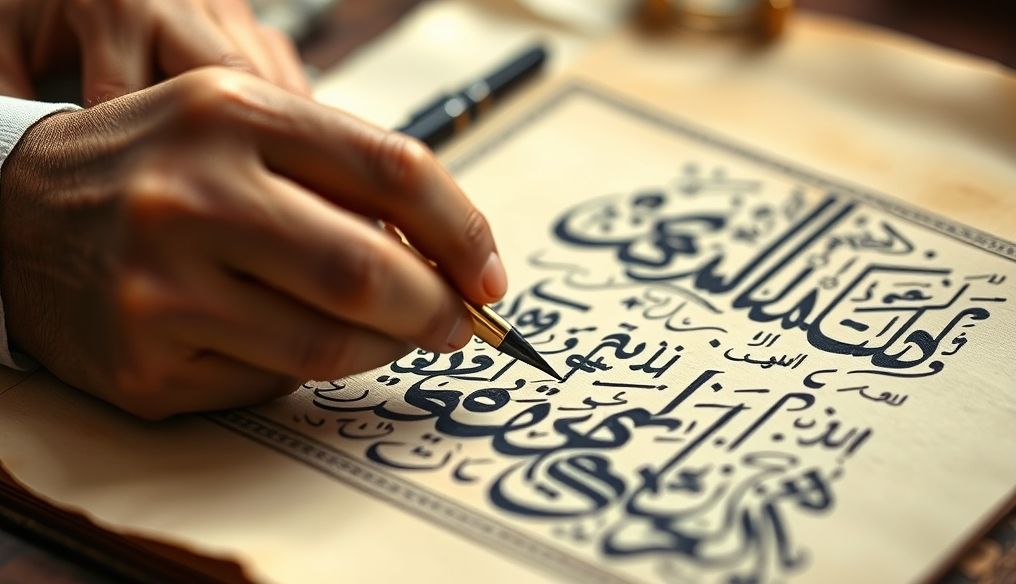Who is Naguib Mahfouz?
Naguib Mahfouz Abdel Aziz Ibrahim Ahmed El-Basha, born on December 11, 1911, in the Al-Gamaliya district of Cairo, and died on August 30, 2006. He was an Egyptian novelist, short story writer, playwright, and screenwriter. He is considered one of the most important writers of the Arabic language in the twentieth century and one of the pioneers of the modern Arabic novel. He is famous for his literary works that dealt with the issues of Egyptian and Arab society, and conveyed a realistic image of daily life and the social and political changes that Egypt witnessed.
His Upbringing and Education
Naguib Mahfouz grew up in a middle-class family, and his father was a government employee. He received his education in the Kuttab and then joined government schools, graduating from the Department of Philosophy at the Faculty of Arts, Cairo University in 1934. His upbringing in the ancient Al-Gamaliya district influenced his writings, as he drew many of his characters and events from this neighborhood.
His Literary Beginnings
Naguib Mahfouz began his literary career in the 1930s by writing short stories and articles in newspapers and magazines. In the 1940s, he turned to writing historical novels, where he published three historical novels: "Khufu's Wisdom," "Rhadopis of Nubia," and "The Struggle of Thebes."
Why Did Naguib Mahfouz Win the Nobel Prize?
Naguib Mahfouz was awarded the Nobel Prize in Literature in 1988 "who, through works rich in nuance – now clear-sightedly realistic, now evocatively ambiguous – has formed an Arabian narrative art that applies to all mankind."
Main Reasons for Awarding Him the Prize
- The Human Depth in His Works: His novels dealt with universal human issues such as love, justice, freedom, existence, and death, making them close to the hearts of readers all over the world.
- His Realistic Depiction of Egyptian Society: He presented an honest and realistic picture of life in Egypt, with all its contradictions, conflicts, and challenges, contributing to a deeper understanding of Egyptian and Arab culture.
- His Influence on Arabic Literature: He revolutionized Arabic literature, introducing new narrative techniques and innovative expression styles, and inspiring many Arab writers and authors.
- His Contribution to Dialogue Between Cultures: His works contributed to promoting dialogue and understanding between different cultures, presenting a positive image of Arab and Islamic culture to the world.
The Most Important Literary Works of Naguib Mahfouz
Naguib Mahfouz left a huge literary legacy that includes many novels, short stories, plays, and scenarios. Among his most important works:
The Cairo Trilogy
The Cairo Trilogy (Palace Walk, Palace of Desire, Sugar Street) is considered one of Naguib Mahfouz's most important and famous works. The trilogy tells the story of an Egyptian middle-class family over three generations, and depicts the social and political changes that Egypt witnessed from World War I to the 1952 Revolution.
Children of Gebelawi
This novel sparked widespread controversy due to its handling of sensitive religious and social issues. The novel tells the story of an Egyptian neighborhood and the struggle of generations in it, and raises questions about religion, power, and justice.
Midaq Alley
This novel depicts life in a popular Cairo neighborhood during World War II. The novel focuses on different characters from the residents of the alley, and presents their problems, dreams, and human relationships.
The Beginning and the End
This novel tells the story of a poor Egyptian family trying to overcome the difficulties of life in Cairo. The novel deals with issues of poverty, unemployment, and corruption, and highlights the suffering of the poor classes in Egyptian society.
The Thief and the Dogs
This novel is considered one of Naguib Mahfouz's most important psychological novels. The novel tells the story of Said Mahran, a thief who gets out of prison and seeks revenge on those who betrayed him.
Naguib Mahfouz's Literary Style
Naguib Mahfouz was distinguished by his unique literary style that combines realism, symbolism, and psychoanalysis. Among the most important characteristics of his style:
- Realism: He was keen to depict the Egyptian reality in all its details, without embellishment or distortion.
- Symbolism: He used symbols and allusions to express his ideas and opinions indirectly.
- Psychoanalysis: He was interested in analyzing the characters of his novels and revealing their motives and feelings.
- Simple Language: He used simple and easy-to-understand language, close to the language of daily life.
- Flowing Narration: His narration was characterized by flow and smoothness, which attracts the reader and makes him immerse himself in the events.
Naguib Mahfouz's Influence on Arabic and World Literature
Naguib Mahfouz had a great influence on Arabic and world literature. He inspired many Arab writers and authors, and contributed to the development of the modern Arabic novel. His works have also been translated into many foreign languages and have been highly appreciated by readers and critics all over the world.
His Influence on Arabic Literature
- Developing the Arabic Novel: He contributed to the development of the modern Arabic novel by introducing new narrative techniques and innovative expression styles.
- Inspiring Writers and Authors: He inspired many Arab writers and authors, and encouraged them to write about the issues of Arab society.
- Raising the Level of Arabic Literature: He contributed to raising the level of Arabic literature and making it competitive with world literature.
His Influence on World Literature
- Introducing the World to Arabic Literature: He contributed to introducing the world to Arabic literature and Arab culture.
- Translating His Works into Foreign Languages: His works have been translated into many foreign languages and have been highly appreciated by readers and critics all over the world.
- Winning the Nobel Prize: His winning the Nobel Prize contributed to highlighting Arabic literature and making it receive more attention.
Naguib Mahfouz's Legacy
Naguib Mahfouz left a huge literary legacy that will remain immortal throughout the ages. His literary works will continue to inspire future generations and will contribute to a deeper understanding of Egyptian and Arab culture. The Nobel Prize he received will also remain a symbol of the world's appreciation for Arabic literature.
Honoring Him After His Death
After his death, Naguib Mahfouz was honored in many Arab and foreign countries. His name was given to many streets, schools, and libraries, and many conferences and seminars were organized about his literary works. Many films and television series adapted from his novels have also been produced.
Naguib Mahfouz: A Global Literary Figure
Naguib Mahfouz is not just an Egyptian writer, but a global literary figure. His literary works have transcended the boundaries of time and place, and have dealt with universal human issues that concern all of humanity. His winning the Nobel Prize was a recognition of the importance of Arabic literature and its ability to express universal human issues.
Note: This article provides a comprehensive overview of the life and works of Naguib Mahfouz and the reasons for his Nobel Prize. The reader can expand on the search for his works and read them to enjoy the beauty of Arabic literature.




